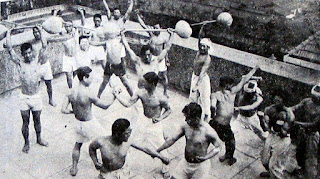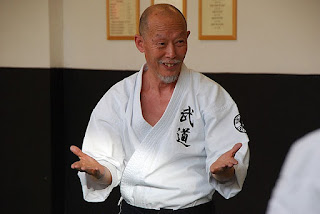by Phillip Starr
One of the ways by which I can determine a student’s level of understanding and skill is by paying attention to the questions they ask. Whenever they ask a particular question, I consider just how it could be that they’d even wonder about such a thing (the object of the question). If they haven’t been practicing it and wondering about it, they would never know what question(s) to ask.
Now, I’m not necessarily talking about very simple things such as “where do my feet go when I stand in a forward stance?” Rather, I’m talking about much more intricate details/principles. At the same time, I warn students not to get TOO analytical about certain movements. Being over-analytical is usually detrimental to their progress.
For instance, if a professional baseball pitcher gets too analytical about how to throw the ball, his mind gets so befuddled with small details that he’ll soon lose the ability to throw the ball as he should. The same is true for all physical activities.
BUT…after practicing his pitch may, many times, he may see a small detail…a principle…that may help him improve. And THEN he can ask his coach about it. After practicing a basic hip throw, a practitioner of judo might find a very small detail/principle that just might enable him to execute the technique more effectively. When that happens, he may ask his instructor about it.
Asking such questions was usually discouraged by instructors back in the day. China and Japan adhered closely to the tenets of Confucianism, which considered questioning one’s teacher as a form of insolence. Answers/responses were often meted out as a form of punishment. The end result was that students quickly learned to keep their mouths shut.
My own teacher, master Chen, would respond rather violently (at first) when his Caucasian student (moi) would ask questions. Admittedly, many of them were, in retrospect, rather stupid questions. I once asked about a particular movement in one of our forms…he responded by having me attack him. He struck my arm with such force that I couldn’t use it properly for the rest of the day! But that’s how we Westerners are brought up to learn…we ask questions. Sifu Chen eventually came to understand this and his responses became much less painful.
My most senior student, Hiro Misawa, will ask questions about very small, seemingly insignificant principles or movements that he’s already been working on for a while. He wants to know what I think…and I tell him. This has been a huge help to him in developing very high skills. And it helps me to better understand his level of expertise. If he hadn’t been practicing enough, he’d never have discovered enough to ask such questions…



.jpg)


















No comments:
Post a Comment